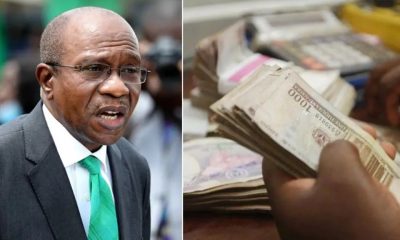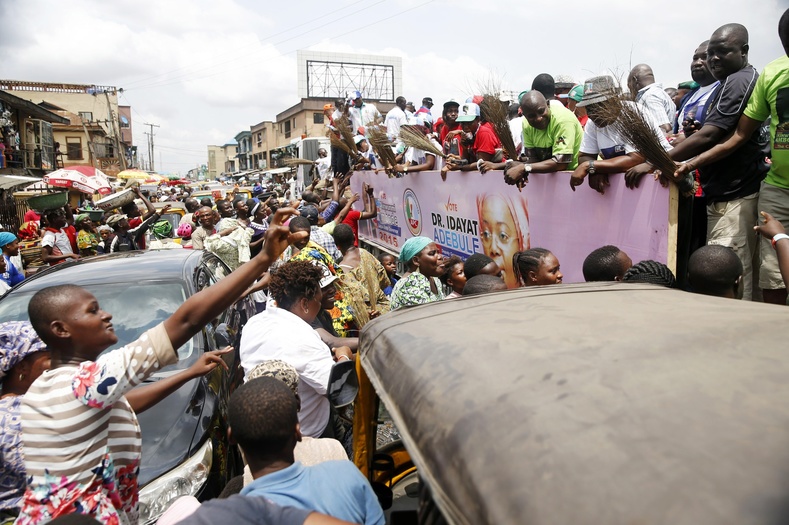Feature/OPED
Four Biggest Losers of 2023 Nigerian General Elections
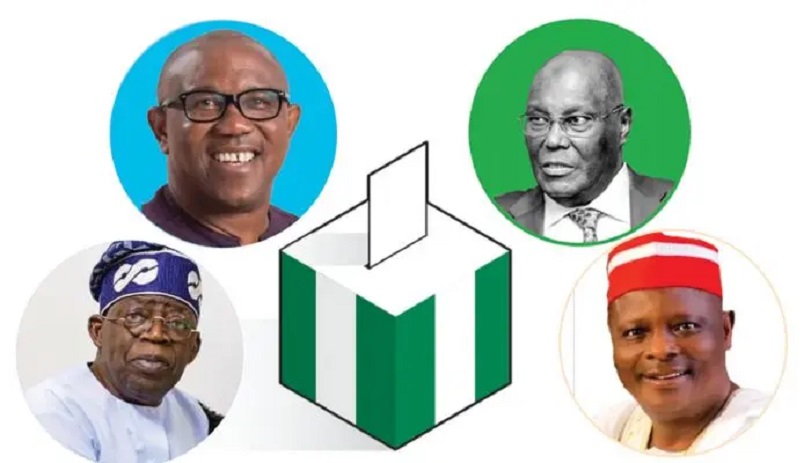
By Michael Owhoko, PhD
The real losers of the 2023 Nigerian general elections are not the electorates who were deprived of their rights to freely choose candidates of their choice or the first-timer youths who were disappointed by the Nigerian state, or the candidates who lost or won as declared by the Independent National Electoral Commission (INEC).
The biggest losers are President Muhammadu Buhari; INEC Chairman, Prof. Mahmood Yakubu; President-elect, Senator Bola Ahmed Tinubu; and Nigeria as a political entity.
Except for Bola Tinubu, who carries the burden of legitimacy arising from a flawed process and total miniature votes garnered, the others will live with a scar and collective guilt slammed on the country by an ethical deficit in the delivery process of the elections.
With general disenchantment over the conduct of the 2023 Nigerian general elections by over 145,000 national and foreign observers deployed across the country, INEC failed to leave a split opinion on its capacity to conduct free, fair and credible elections, a development that will hunt Mahmood Yakubu, Mohammed Buhari and Nigeria for a long time to come. The exercise was not only a horrendous phenomenon on the psyche of Nigerians but a fleeting nightmare.
A negative consensus opinion on the flawed elections by the European Union, African Union, Economic Community of West African States (ECOWAS), Commonwealth, the International Republican Institute (IRI), National Democratic Institute (NDI), Joint Election Observation Mission (IEOM), four former African presidents, and Transition Monitoring Group (TMG), is an affirmation of global scepticism about Nigeria’s reputation. They all concluded that the electoral process lacked transparency, which encouraged manipulations and undermined voters’ confidence.
This trust deficit was also highlighted by Chatham House when it declared that INEC had learnt nothing from its past failures. Specifically, it said, “The INEC’s performance and controversies over these results mean that the electoral reforms and lessons declared to have been learned were not fully applied and, as an electoral body, it was significantly less prepared than it claimed.”
As a consequence of these opinions, President Buhari might have missed the opportunity to etch his name in gold over his failure to provide a secure and enabling environment for free, fair and credible elections. As Commander-in-Chief of the Armed Forces, he failed to optimally use his offices, including effective deployment of the police, army, DSS, and other security agencies to protect voters during the elections.
Nigerians were mortified by horrendous images of election violations, and no rationalization could justify such criminal acts. An election where about 27 persons were killed nationwide over violence, ballot snatching, thuggery, voter suppression, ethnic bigotry, and use of tribal gods and deities, even in the presence of security operatives in some instances, can only be a national shame.
Besides, whatever is left of Buhari’s legacy might have been further weakened by the naira redesign and currency swap policy which brought untold hardship to citizens during the period of the elections.
Perhaps, the intention of the policy was to eliminate monetary inducement and vote buying; unfortunately, Buhari and the Central Bank Governor, Godwin Emefiele, were outwitted by politicians through the use of extra-constitutional and procedural means to contrive and achieve sinister objectives.
For the INEC Chairman, Mahmood Yakubu, there might be no second opportunity to redeem his character. With a budget of over N305 billion and other sundry support, he had no reason to have failed. Yakubu gave assurances in both local and international events, including Chatham House, of his Commission’s preparedness, pledging that with the use of technology, including the Bimodal Voter Accreditation System (BVAS) results would be transmitted in real-time to the INEC Result Viewing Portal (IReV).
These assertions receded into irrelevance when INEC failed to comply with the Electoral Act and its own guidelines. The Electoral Act 2022 requires INEC to upload the elections of polling units in its portal as stipulated in Section 60 (5) and Clause 38 of the INEC Regulations and Guidelines.
Specifically, Clause 38 of the INEC Regulations and Guidelines for the Conduct of Elections, 2022 states: “Upon completion of all the Polling Unit voting and results, procedures, the Presiding Officer shall:-(i) Electronically transmit or transfer the result of the Polling Unit direct to the collation system as prescribed by the commission. (ii) Use BVAS to upload a scan of ES8A to INEC Result Viewing Portal (IReV), as prescribed by the commission. (iii) Take the BVAS and the original copy of each of the forms in a tamper-evident envelope to the Registration Area/Ward Collation Officer in the company of security agents. The polling agents may accompany the Presiding Officer to the RA/Ward Collation Centre.”
With non-compliance and deviation from these regulatory provisions, INEC opened the electoral process to manipulations, resulting in a lack of justice and fulfilment for voters.
These violations have exposed existential gaps in the capacity of Mahmood Yakubu to deliver on a significant national assignment. This might cast aspersion on his reputation and capabilities. Indeed, this election is a minus for his profile, as no government or any serious organisation may want to bequeath him with such responsibilities in future.
Unfortunately, the President-elect, Bola Tinubu, is a product of INEC’s flawed process, and this has triggered a legitimacy challenge that is further fuelled by a lean number of votes secured at the election relative to the total votes cast. Tinubu polled 8.87 million (the least by any presidential candidate since 1999), representing 36.61 per cent of total votes and 10.08 per cent of all eligible voters. Out of approximately 93 million registered voters, only about 25 million, representing 28.63 per cent, actually turned out to vote.
Implicitly, Bola Tinubu was not only elected by minority voters when viewed against 25 million persons that voted, and in a country of over 200 million people, scepticism resulting from INEC’s multiple irregularities is unhelpful to his presidency. Perhaps, this accounts for the absence of national pomp and celebration that would have heralded his victory.
Without prejudice to the outcome of the current litigation, going forward, Bola Tinubu should activate his social capital to open up channels across to influential groups and personalities in the country, including his political rivals, aimed at legitimizing his presidency and achieving unity through the formation of an all-inclusive government.
INEC’s performance has also rubbed off on Nigeria’s image as a corrupt country. Through the foreign observers, the perception of the international community about Nigeria as a corrupt country might have worsened on account of their opinions over the lack of transparency and operational failures that characterized INEC’s performance.
In the 2022 Transparency International (TI) Corruption Perception Index (CPI), Nigeria was ranked 150 out of 180 countries and also placed as the second most corrupt country in West Africa. By INEC’s standard and performance, it has unwittingly further confirmed Nigeria as a corrupt country and deepened global negative impressions.
Nigeria lost the opportunity to demonstrate before the world of its preparedness to be a leading light in Africa and world affairs, using the elections as a springboard to exhibit its leadership potential and capacity. Hopes for these attainments have, however, been frustrated and shattered by INEC.
Besides, with the world’s attention on Nigeria as connoted by the presence of foreign observers, Nigeria should have used the elections as public relations tool to strengthen the country’s image through the conduct of a free, fair and credible election under a transparent atmosphere. This would have left foreign observers rattled as to Nigeria’s new values and ethical orientation.
It was an event Nigeria should have used to shore up its dwindling reputation. It is more effective than an image-laundering programme where a huge amount of money in foreign currencies is budgeted for public relations and reputation management. With a good image, Nigerians’ dignity and respect would be restored and largely put an end to discrimination at border posts in foreign countries.
This experience should serve as a lesson on the need to be transparent in the conduct of future elections. Former American President, Jimmy Carter, who was in Nigeria in the past to observe elections, vowed never to observe elections in Nigeria again after his ugly experience of brazen violation of the electoral process. He was upset with the impunity with which politicians used thuggery to deprive the electorate of freely voting for candidates of their choice.
It is hoped that Nigeria will not allow a repeat of this ugly experience. It is time to make political offices unattractive to discourage desperation which is the underpinning motive for all these electoral atrocities. The electoral body should be reformed and repositioned with people of integrity as drivers aimed at restoring electoral integrity.
Dr Mike Owhoko, a Lagos-based journalist and author, can be reached at www.mikeowhoko.com.
Feature/OPED
After the Capital Rush: Who Really Wins Nigeria’s Bank Recapitalisation?
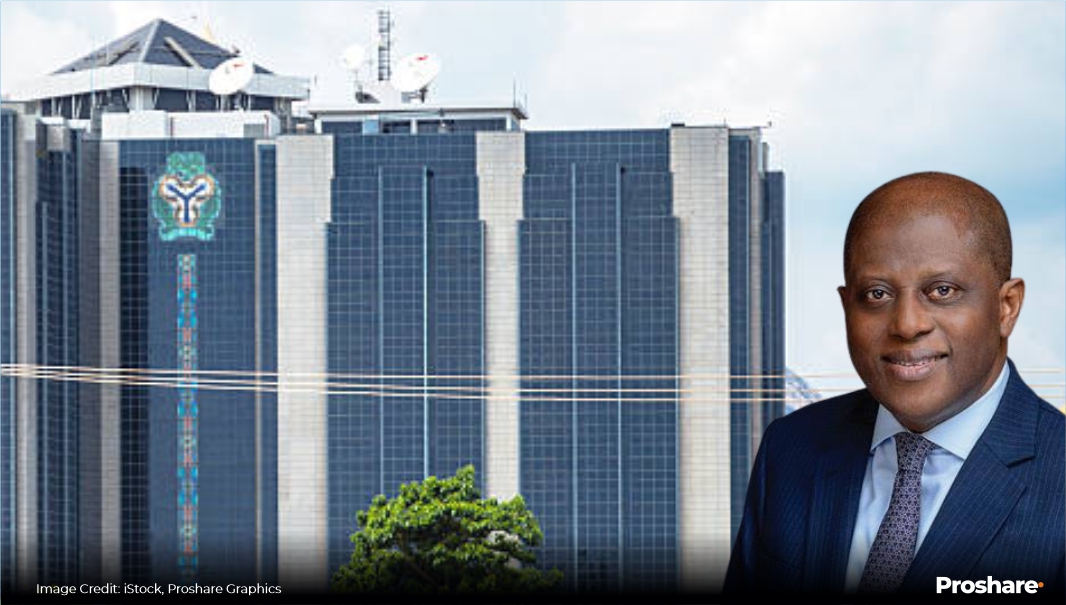
By Blaise Udunze
By any standard, Nigeria’s ongoing bank recapitalisation exercise is one of the most consequential financial sector reforms since the 2004-2005 consolidation that shrank the number of banks from 89 to 25. Then, as now, the stated objective was stability to have stronger balance sheets, better shock absorption, and banks capable of financing long-term economic growth.
The Central Bank of Nigeria (CBN), in 2024, mandated a sweeping recapitalisation exercise compelling banks to raise substantially higher capital bases depending on their license categories. The categorisation mandated that every Tier-1 deposit money bank with international authorization is to warehouse N500 billion minimum capital base, and a national bank must have N200 billion, while a regional bank must have N50 billion by the deadline of 31st March 2026. According to the apex bank, the objectives were to strengthen resilience, create a more robust buffer against shocks, and position Nigerian banks as global competitors capable of funding a $1 trillion economy.
But in the thick of the race to comply and as the dust gradually settles, a far bigger conversation has emerged, one that cuts to the heart of how our banking system works. What will the aftermath of recapitalisation mean for Nigeria’s banking landscape, financial inclusion agenda, and real-sector development?
Beyond the headlines of rights issues, private placements, and billionaire founders boosting stakes, every Nigerians deserve a sober assessment of what has changed, and what still must change, if recapitalisation is to translate into a genuinely improved banking system.
The points are who benefits most from its evolution, and whether ordinary Nigerians will feel the promised transformation in their everyday financial lives, because history has taught us that recapitalisation is never a neutral policy. The fact remains that recapitalization creates winners and losers, restructures incentives, and often leads to unintended outcomes that outlive the reform itself.
Concentration Risk: When the Big Get Bigger
Recapitalisation is meant to make banks stronger, and at the same time, it risks making them fewer and bigger, concentrating power and risks in an ever-narrowing circle. Nigeria’s Tier-1 banks, those already controlling roughly 70 percent of banking assets, are poised to expand further in both balance sheet size and market influence. This deepens the divide between the “haves” and “have-nots” within the sector.
A critical fallout of this exercise has been the acceleration of consolidation. Stronger banks with ready access to capital markets, like Access Holdings and Zenith Bank, have managed to meet or exceed the new thresholds early by raising funds through rights issues and public offerings. Access Bank boosted its capital to nearly N595 billion, and Zenith Bank to about N615 billion.
In contrast, banks that lack deep pockets or the ability to quickly mobilise investors are lagging. The results always show that the biggest banks raise capital faster and cheaper, while smaller banks struggle to keep pace.
As of mid-2025, fewer than 14 of Nigeria’s 24 commercial banks met the required capital base, meaning a significant number were still scrambling, turning to rights issues, private placements, mergers, and even licensing downgrades to survive.
The danger here is not merely numerical. It is systemic: as capital becomes more concentrated, the banking system could inadvertently mimic oligopolistic tendencies, reducing competition, narrowing choices for customers, and potentially heightening systemic risk should one of these “too-big-to-fail” institutions falter.
Capital Flight or Strategic Expansion? The Foreign Subsidiary Question
One of the most contentious aspects of the recapitalisation aftermath has been the deployment of newly raised capital, especially its use outside Nigeria. Several banks, flush with liquidity from rights issues and injections, have signalled or executed investments in foreign subsidiaries and expansions abroad, like what we are experiencing with Nigerian banks spreading their tentacles to the Ivory Coast, Ghana, Kenya, and beyond. Zenith Bank’s planned expansion into the Ivory Coast exemplifies this outward push.
While international diversification can be a sound strategic move for multinational banks, there is an uncomfortable optics and developmental question here: why is Nigerian money being deployed abroad when millions of Nigerians remain unbanked or underbanked at home?
According to the World Bank, a large number of Nigeria’s adult population still lack access to formal financial services, while millions of SMEs, micro-entrepreneurs, and rural households remain on the edge, underserved by traditional banks that now chase profitability and scale.
Of a truth, redirecting Nigerian capital to foreign markets may deliver shareholder returns, but it does little in the short term to advance domestic financial inclusion, poverty reduction, or grassroots economic participation. The optics of capital flight, even when legal and strategic, demand scrutiny, especially in a nation still struggling with deep regional and demographic disparities.
Impact on Credit and the Real Economy
For the ordinary Nigerian, the most important question is simple: will recapitalisation make credit cheaper and more accessible?
History suggests the answer is not automatic. The tradition in Nigeria’s bank system is mainly to protect returns, and for this reason, many banks respond to higher capital requirements by tightening lending standards, raising interest rates, or focusing on low-risk government securities rather than private-sector loans, because raising capital is expensive, and banks are profit-driven institutions. Small and medium-sized enterprises (SMEs), often described as the engine of growth, are usually the first casualties of such risk aversion.
If recapitalisation results in stronger balance sheets but weaker lending to the real economy, then its benefits remain largely cosmetic. The economy does not grow on capital adequacy ratios alone; it grows when banks take measured risks to finance production, innovation, and consumption.
Retail Banking Retreat: Handing the Mass Market to Fintechs?
In recent years, we have witnessed one of the most striking shifts, or a gradual retreat of traditional banks from mass retail banking, particularly low-income and informal customers.
The question running through the hearts of many is whether Nigerian banks are retreating from retail banking, leaving space for fintech disruptors to fill the void.
In recent years, players like OPAY, Moniepoint, Palmpay, and a host of digital financial services arms have become de facto retail banking platforms for millions of Nigerians. They provide everyday payment services, wallet functionalities, micro-loans, and QR-enabled commerce, areas traditional banks once dominated. This trend has accelerated as banks chase corporate clients where margins are higher and risk profiles perceived as more manageable. The true picture of the financial landscape today is that the fintechs own the retail space, and banks dominate corporate and institutional finance. But it is unclear or uncertain if this model can continue to work effectively in the long term.
Despite the areas in which the Fintechs excel, whether in agility, product innovation, and customer experience, they still rely heavily on underlying banking infrastructure for liquidity, settlement, and regulatory compliance. Should the retail banking ecosystem become split between digital wallets and corporate corridors, rather than being vertically integrated within banks, systemic liquidity dynamics and financial stability could be affected.
Nigerians deserve a banking system where the comforts and conveniences of digital finance are backed by the stability, regulatory oversight, and capital strength of licensed banks, not a system where traditional banks withdraw from retail, leaving unregulated or lightly regulated players to carry that mantle.
Corporate Governance: When Founders Tighten Their Grip
The recapitalisation exercise has not been merely a technical capital-raising exercise; it has become a theatre of power plays at the top. In several banks, founders and major investors have used the exercise to increase their stakes, concentrating ownership even as they extol the virtues of financial resilience.
Prominent founders, from Tony Elumelu at UBA to Femi Otedola at First Holdco and Jim Ovia at Zenith Bank, have all been actively increasing their shareholdings. These moves raise legitimate questions about corporate governance when founders increase control during a regulatory exercise. Are they driven by confidence in their institutions, or are they fortifying personal and strategic influence amid industry restructuring?
Though there might be nothing inherently wrong with founders or shareholders demonstrating faith in their institutions, one fact remains that the governance challenge lies not simply in who holds the shares, but how decisions are made and whose interests are prioritised. Will banks maintain robust internal checks and balances, ensuring that capital deployment aligns with national development goals? The question is whether the CBN is equipped with adequate supervisory bandwidth and tools to check potential excesses if emerging shareholder concentrations translate into undue influence or risks to financial stability. These are questions that transcend annual reports; they strike at the heart of trust in the system.
Regional Disparity in Lending: Lagos Is Not Nigeria
One of the persistent criticisms of Nigerian banking is regional lending inequality. It has been said that most bank loans are still overwhelmingly concentrated in Lagos and the Southwest, despite decades of financial deepening in this region; large swathes of the North, Southeast, and other underserved regions receive disproportionately smaller shares of credit. This imbalance not only undermines inclusive growth but also fuels perceptions of economic exclusion.
Recapitalisation, in theory, should have enhanced banks’ capacity to support broader economic activity. Yet, the reality remains that loans and advances are overwhelmingly concentrated in economic hubs like Lagos.
The CBN must deploy clear incentives and penalties to encourage geographic diversification of lending. This could include differentiated capital requirements, credit guarantees, or tax incentives tied to regional loan portfolios. A recapitalised banking system that does not finance national development is a missed opportunity.
Cybersecurity, Staff Welfare, and the Technology Deficit
Beyond balance sheets and brand expansion, there is a human and technological dimension to the banking sector’s challenge. Fraud remains rampant, and one of the leading frustrations voiced by Nigerians involves failed transactions, delayed reversals, and poor digital experience. Banks can raise capital, but if they fail to invest heavily in cybersecurity, fraud detection, staff training, and welfare, the everyday customer will continue to view the banking system as unreliable.
Nigeria’s fintech revolution has thrived precisely because it has pushed incumbents to become more customer-centric, agile, and tech-savvy. If banks now flush with capital don’t channel a portion of those funds into robust IT systems, workforce development, fraud mitigation, and seamless customer service, then the recapitalisation will have achieved little beyond stronger balance sheets. In short, Nigerians should feel the difference, not merely in stock prices and market capitalisation, but in smooth banking apps, instant reversals, responsive customer care, and secure platforms.
The Banks Left Behind: Mergers, Failures, or Forced Restructuring?
With fewer than half the banks having fully complied with the recapitalisation requirements deep into 2025, a pressing question is: what awaits those that lag? Many banks are still closing capital gaps that run into hundreds of billions of naira. According to industry estimates, the total recapitalisation gap across the sector could reach as much as N4.7 trillion if all requirements are strictly enforced.
Banks that fail to meet the March 2026 deadline face a few options:
– Forced M&A. Regulators could effectively compel weaker banks to merge with stronger ones, echoing the consolidation wave of 2005 that reduced the sector from 89 to 25 banks.
– License downgrades or conversions. Some banks may choose to operate at a lower license category that demands a smaller capital base.
– Exits or closures. In extreme cases, banks that can neither raise capital nor find a merger partner might be forced out of the market.
This regulatory pressure should not be construed merely as punitive. It is part of the CBN’s broader architecture of ensuring that only solvent, well-capitalised, and risk-prepared institutions operate. However, the transition must be managed carefully to prevent contagion, protect depositors, and preserve confidence.
Why Are Tier-1 Banks Still Chasing Capital?
Perhaps the most intriguing puzzle is why some Tier-1 banks, long regarded as strong and profitable, are aggressively raising capital. Even banks thought to be among the strongest, such as UBA, First Holdco, Fidelity, GTCO, and FCMB, have struggled to close their capital gaps. UBA, for instance, succeeded in raising around N355 billion toward its N500 billion target at one point and planned additional rights issues to bridge the remainder.
This reveals another reality that capital is not just numbers on paper; it is investor confidence, market appetite, and macroeconomic stability.
One can also say that the answer lies partly in ambition to expand into new markets, infrastructure financing, and compliance with stricter global standards.
However, it also reflects deeper structural pressures, including currency depreciation eroding capital, rising non-performing loans, and the substantial funding required to support Nigeria’s development needs. Even giants are discovering that yesterday’s capital is no longer sufficient for tomorrow’s challenges.
Reform Without Deception
As the Nigerian banking sector recapitalization exercise comes to a close by March 31, 2026, the ultimate test will be whether the reforms deliver on their transformational promise.
Some of the concerns in the minds of Nigerians today will be to see a system that supports inclusive growth, equitable credit distribution, world-class customer service, and resilient financial intermediation. Or will we see a sector that, despite larger capital bases, still reflects old hierarchies, geographic biases, and operational friction? The cynic might say that recapitalisation simply made big banks bigger and empowered dominant shareholders.
But a more hopeful perspective invites stakeholders, including regulators, customers, civil society, and bankers themselves, to co-design the next chapter of Nigerian banking; one that balances scale with inclusion, profitability with impact, and stability with innovation. The difference will be made not by press releases or shareholder announcements, but by deliberate regulatory action and measurable improvements in how banks serve the economy.
For now, the capital has been raised, but the true capital that counts is the confidence Nigerians place in their banks every time they log into an app, make a transfer, or deposit their life’s savings. Only when that trust is visible in everyday experience can we say that recapitalisation has truly succeeded.
Blaise, a journalist and PR professional, writes from Lagos and can be reached via: [email protected]
Feature/OPED
Ledig at One: The Year We Turned Stablecoins Into Real Liquidity for the Real World
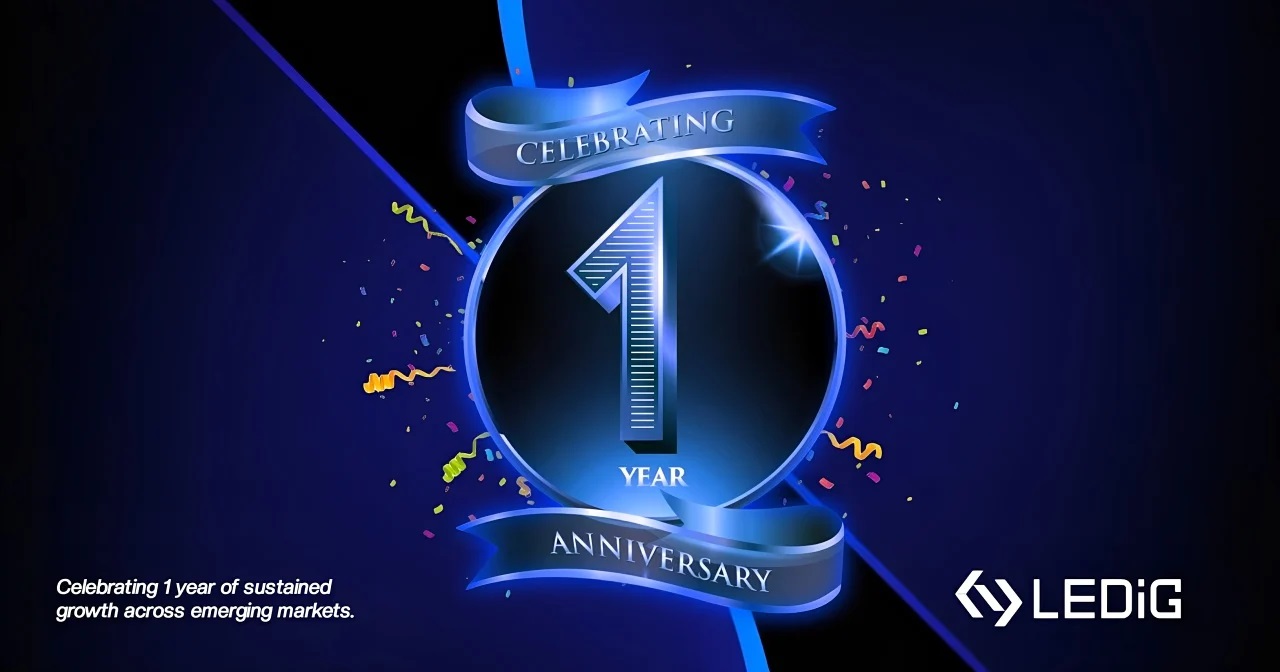
Ledig, one of Africa’s leading fintech infrastructure companies, marked its first anniversary this year. The company used the anniversary to reflect on how it has approached one of the most persistent problems in cross-border finance: moving large sums of money into and out of emerging markets without the uncertainty, delays, or volatility present in emerging markets.
According to the company, many businesses operating across Africa and similar markets had long dealt with unreliable settlement timelines, opaque processes, and a lack of credible hedging options. Transactions often depended on manual coordination and informal assurances, leaving companies exposed to both operational risk and volatile exchange rates.
Ledig said this reality shaped its decision to enter the market with a focus on scale, speed, and predictability rather than small retail transfers.
The company explained that its infrastructure was designed from the outset to handle high-value flows, ranging from hundreds of thousands of dollars to several million, with settlement measured in seconds rather than days. It built an instant liquidity engine, demonstrating a two-way system that allows businesses to convert stablecoins to local currencies and local currencies back to stablecoins with equal efficiency, demonstrating that corporate cash flows frequently move in both directions, sometimes within the same week.
Ledig noted that early users typically began with smaller test transactions before increasing volumes once they saw payments settle quickly and reliably. That pattern, it said, contributed to the platform crossing $100 million in processed volume within its first year, driven largely by international companies operating across Africa and other emerging markets.
Much of the underlying complexity associated with stablecoin payments, the company added, remains intentionally hidden from users. Wallet management, local settlement rails, and an adaptive foreign exchange engine operate in the background, while clients interact through a simple dashboard or API. Ledig emphasised that users do not need to engage directly with crypto mechanics, as stablecoins function as an internal settlement layer rather than a product they must actively manage.
Beyond settlement speed, Ledig identified currency volatility as a major challenge facing businesses in emerging markets. To address this, the firm introduced a derivatives hedging protocol designed to help businesses lock in value earlier and reduce exposure to adverse exchange rate movements.
The company reported that this hedging product initially operated off-chain and still facilitated over $55 million in activity. It is now transitioning the protocol fully on-chain, with Base selected as the deployment network due to its compatibility with the stablecoins used in Ledig’s settlement flows. Ledig said the move is intended to provide greater transparency and a cleaner execution environment tailored to commercial hedging needs rather than speculative trading.
Ledig also pointed out that its relatively small team has been an advantage rather than a limitation. By avoiding excessive expansion early on, the company said it was able to focus on building modular components that work independently but integrate into a broader treasury and risk management system. These components cover stablecoin-to-fiat conversion, fiat-to-stablecoin flows, foreign exchange management, treasury support, and hedging, allowing businesses to assemble a unified setup for money movement and risk control.
While the company does not publicly disclose detailed revenue figures, it stated that its strongest indicator of growth has been repeat, high-volume usage. Ledig said clients continue to route core operational payments through its platform, including payroll, supplier settlements, and expansion-related transfers, particularly in markets where delays can disrupt entire business operations.
Looking ahead to 2026, Ledig said its priorities include scaling the on-chain deployment of its derivatives hedging protocol, expanding liquidity capacity to support even larger transactions, and strengthening its licensing and regulatory framework to accommodate more institutional partners. The company added that it remains focused on reducing friction for businesses entering or operating in emerging markets.
In closing, Ledig described its first year as an early step rather than a milestone. It reiterated that its objective remains centered on enabling fast, large-value money movement and protecting businesses from currency volatility through a proven hedging framework, while keeping the underlying technology largely invisible to users.
Feature/OPED
If You Understand Nigeria, You Fit Craze
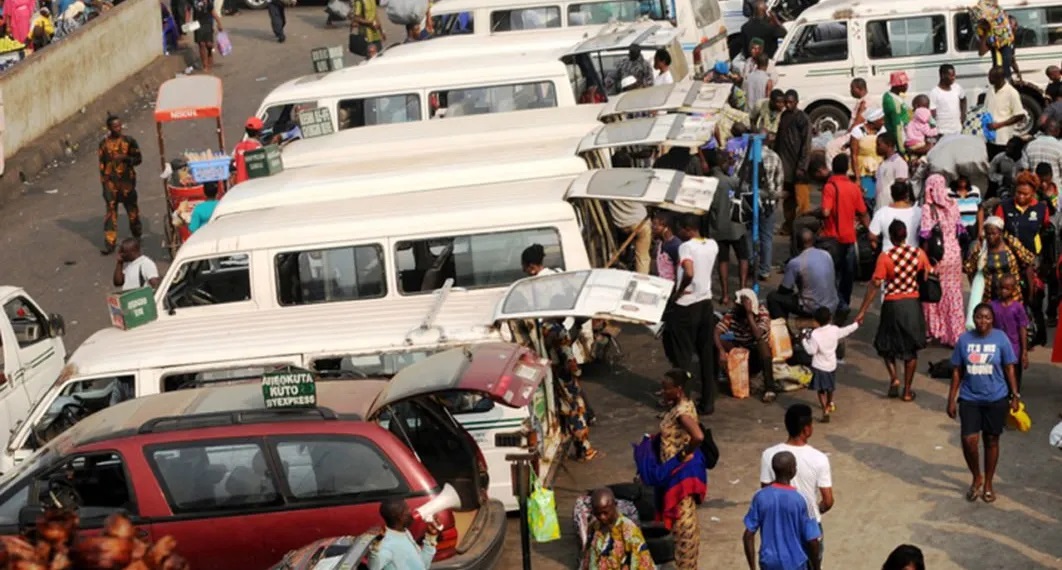
By Prince Charles Dickson PhD
There is a popular Nigerian lingo cum proverb that has graduated from street humour to philosophical thesis: “If dem explain Nigeria give you and you understand am, you fit craze.” It sounds funny. It is funny. But like most Nigerian jokes, it is also dangerously accurate.
Catherine’s story from Kubwa Road is the kind of thing that does not need embellishment. Nigeria already embellishes itself. Picture this: a pedestrian bridge built for pedestrians. A bridge whose sole job description in life is to allow human beings cross a deadly highway without dying. And yet, under this very bridge, pedestrians are crossing the road. Not illegally on their own this time, but with the active assistance of a uniformed Road Safety officer who stops traffic so that people can jaywalk under a bridge built to stop jaywalking.
At that point, sanity resigns.
You expect the officer to enforce the law: “Use the bridge.” Instead, he enforces survival: “Let nobody die today.” And therein lies the Nigerian paradox. The officer is not wicked. In fact, he is humane. He chooses immediate life over abstract order. But his humanity quietly murders the system. His kindness baptises lawlessness. His good intention tells the pedestrian: you are right; the bridge is optional.
Nigeria is full of such tragic kindness.
We build systems and then emotionally sabotage them. We complain about lack of infrastructure, but when infrastructure shows up, we treat it like an optional suggestion. Pedestrian bridges become decorative monuments. Traffic lights become Christmas decorations. Zebra crossings become modern art—beautiful, symbolic, and useless.
Ask the pedestrians why they won’t use the bridge and you’ll hear a sermon:
“It’s too stressful to climb.”
“It’s far from my bus stop.”
“My knee dey pain me.”
“I no get time.”
“Thieves dey up there.”
All valid explanations. None a justification. Because the same person that cannot climb a bridge will sprint across ten lanes of oncoming traffic with Olympic-level agility. Suddenly, arthritis respects urgency.
But Nigeria does not punish inconsistency; it rewards it.
So, the Road Safety officer becomes a moral hostage. Arrest the pedestrians and risk chaos, insults, possible mob action, and a viral video titled “FRSC wickedness.” Or stop cars, save lives, and quietly train people that rules are flexible when enough people ignore them.
Nigeria often chooses the short-term good that destroys the long-term future.
And that is why understanding Nigeria is a psychiatric risk.
This paradox does not stop at Kubwa Road. It is a national operating system.
We live in a country where a polite policeman shocks you. A truthful politician is treated like folklore—“what-God-cannot-do-does-exist.” A nurse or doctor going one year without strike becomes breaking news. Bandits negotiate peace deals with rifles slung over their shoulders, attend dialogue meetings fully armed, and sometimes do TikTok videos of ransoms like content creators.
Criminals have better PR than institutions.
In Nigeria, you bribe to get WAEC “special centre,” bribe to gain university admission, bribe to choose your state of origin for NYSC, and bribe to secure a job. Merit is shy. Connection is confident. Talent waits outside while mediocrity walks in through the back door shaking hands.
You even bribe to eat food at social events. Not metaphorically. Literally. You must “know somebody” to access rice and small chops at a wedding you were invited to. At burial grounds, you need connections to bury your dead with dignity. Even grief has gatekeepers.
We have normalised the absurd so thoroughly that questioning it feels rude.
And yet, the same Nigerians will shout political slogans with full lungs—“Tinubu! Tinubu!!”—without knowing the name of their councillor, councillor’s office, or councillor’s phone number. National politics is theatre; local governance is invisible. We debate presidency like Premier League fans but cannot locate the people controlling our drainage, primary schools, markets, and roads.
We scream about “bad leadership” in Abuja while ignoring the rot at the ward level where leadership is close enough to knock on your door.
Nigeria is a place where laws exist, but enforcement negotiates moods. Where rules are firm until they meet familiarity. Where morality is elastic and context-dependent. Where being honest is admirable but being foolish is unforgivable.
We admire sharpness more than integrity. We celebrate “sense” even when sense means cheating the system. If you obey the rules and suffer, you are naïve. If you break them and succeed, you are smart.
So, the Road Safety officer on Kubwa Road is not an anomaly. He is Nigeria distilled.
Nigeria teaches you to survive first and reform later—except later never comes.
We choose convenience over consistency. Emotion over institution. Today over tomorrow. Life over law, until life itself becomes cheap because law has been weakened.
This is how bridges become irrelevant. This is how systems decay. This is how exceptions swallow rules.
And then we wonder why nothing works.
The painful truth is this: Nigeria is not confusing because it lacks logic. It is confusing because it has too many competing logics. Survival logic. Moral logic. Emotional logic. Opportunistic logic. Religious logic. Tribal logic. Political logic. None fully dominant. All constantly clashing.
So, when someone says, “If dem explain Nigeria give you and you understand am, you fit craze,” what they really mean is this: Nigeria is not designed to be understood; it is designed to be endured.
To truly understand Nigeria is to accept contradictions without resolution. To watch bridges built and ignored. Laws written and suspended. Criminals empowered and victims lectured. To see good people make bad choices for good reasons that produce bad outcomes.
And maybe the real madness is not understanding Nigeria—but understanding it and still hoping it will magically fix itself without deliberate, painful, collective change.
Until then, pedestrians will continue crossing under bridges, officers will keep stopping traffic to save lives, systems will keep eroding gently, and we will keep laughing at our own tragedy—because sometimes, laughter is the only therapy left.
Nigeria no be joke.
But if you no laugh, you go cry—May Nigeria win.
-

 Feature/OPED6 years ago
Feature/OPED6 years agoDavos was Different this year
-
Travel/Tourism9 years ago
Lagos Seals Western Lodge Hotel In Ikorodu
-

 Showbiz3 years ago
Showbiz3 years agoEstranged Lover Releases Videos of Empress Njamah Bathing
-

 Banking8 years ago
Banking8 years agoSort Codes of GTBank Branches in Nigeria
-

 Economy3 years ago
Economy3 years agoSubsidy Removal: CNG at N130 Per Litre Cheaper Than Petrol—IPMAN
-

 Banking3 years ago
Banking3 years agoFirst Bank Announces Planned Downtime
-

 Banking3 years ago
Banking3 years agoSort Codes of UBA Branches in Nigeria
-

 Sports3 years ago
Sports3 years agoHighest Paid Nigerian Footballer – How Much Do Nigerian Footballers Earn



